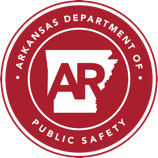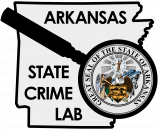History and Overview
The Arkansas State Crime Laboratory was created in 1977 by Act 517. The laboratory was placed in the Department of Public Safety by Act 864 of 1979. This action was reversed by Act 45 of 1981, which made the laboratory an independent agency. In April 1981, the laboratory began moving into its current location at #3 Natural Resources Drive in Little Rock. At that time, the agency shared the building with the Arkansas State Police, occupying approximately 26,000 square feet on the third floor and the basement. In April 1997, State Police moved to their new facility and the Crime Laboratory began remodeling the building at #3 Natural Resources Drive allowing itself to occupy 80,000 square feet. In 2019, the Arkansas State Crime Laboratory was placed in the Department of Public Safety by the Transformation and Efficiencies Act.
The Arkansas State Crime Laboratory is led by a Director. Act 383 of 1991 created a new Crime Laboratory Board, which is made up of eight members (where the original board had only seven members). There is no charge to any law enforcement agency for any analysis of evidence submitted or for testimony in criminal court. The agency can charge specific fees for testimony of its analyst in civil courts. The Crime Laboratory only accepts evidence from those agencies having law enforcement responsibilities. However, during the 79th Legislative Session, the Public Defender Commission was given the authority to utilize laboratory services.
Mission
The mission of the Arkansas State Crime Laboratory is to provide timely, accurate, and reliable forensic science through a collaborative approach that best serves Arkansans.
Vision
The vision of the Arkansas State Crime Laboratory is to improve the lives of Arkansans by delivering exceptional forensic science and promoting a passion for continuous learning and improvement.
Core Values
- Excellence — Upholding the highest standards of quality and professional growth through continuous development.
- Partnership — Promoting teamwork to achieve shared goals.
- Integrity — Demonstrating accountability, ensuring safety, and prioritizing clear communication.
- Commitment — Pursuing ongoing improvement and innovation with dedication and determination.
Strategic Plan
The Arkansas State Crime Laboratory has developed a Strategic Plan for 2021–2022. The most current document can be viewed here.
2021 ASCL Equal Employment Opportunity Utilization Report
The Arkansas State Crime Laboratory’s 2021 ASCL Equal Employment Opportunity Utilization Report can be viewed here.


